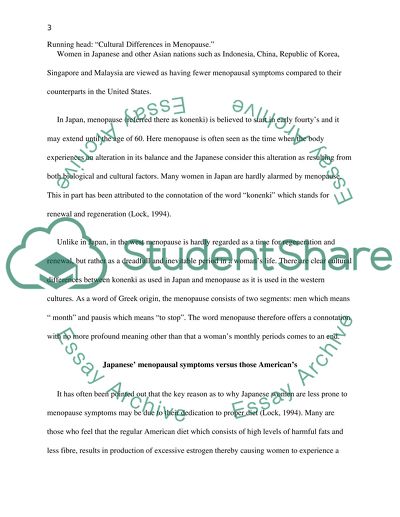Cite this document
(“Menopause Research Paper Example | Topics and Well Written Essays - 1250 words”, n.d.)
Retrieved from https://studentshare.org/psychology/1437849-menopause
Retrieved from https://studentshare.org/psychology/1437849-menopause
(Menopause Research Paper Example | Topics and Well Written Essays - 1250 Words)
https://studentshare.org/psychology/1437849-menopause.
https://studentshare.org/psychology/1437849-menopause.
“Menopause Research Paper Example | Topics and Well Written Essays - 1250 Words”, n.d. https://studentshare.org/psychology/1437849-menopause.


